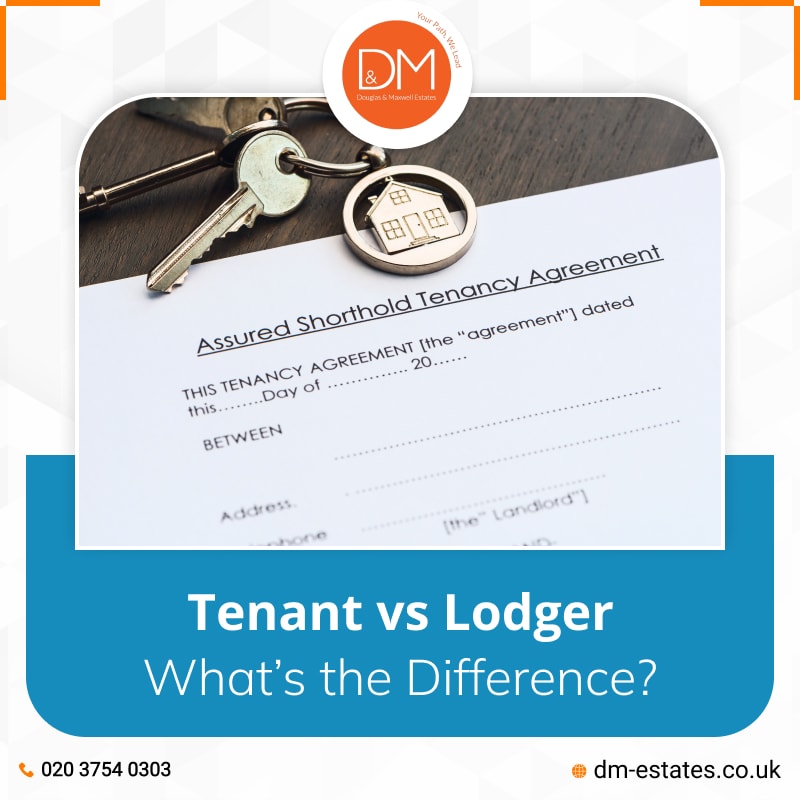Are you a tenant looking for a home? Well, before you start going through the listings for a rental property, we suggest you gain a clear understanding of the difference between a ‘tenant’ and a ‘lodger’. Many landlords use these two terms interchangeably to refer to a renting party, but they do not mean the same. You can hire a Croydon estate agent for your house hunting so that you will receive professional guidance where you require.
Explained in simple words, a lodger lives in the same property as the landlord. Both parties share the home space and the landlord is classified as a live-in landlord. In legal terms, the lodger is referred to as a licensee.
On the other hand, a tenant is someone who lives independently in a rented space. Landlords own the property, but they don’t live there. They are classified as a live-out landlord. A tenancy agreement is signed between the tenant and landlord.
In this blog, we discuss the key points of difference between a lodger and a tenant.
Tenant rights
Tenants living under a tenancy agreement, such as the Assured Short hold Tenancy (AST), are entitled to certain rights during their tenancy period. Such as, the right to live in a safe property with essential repairs carried out in a timely manner, a standard notice period before eviction of no less than 2 months (unless a mutual agreement is made to the contrary).
With lodgers, the laws are different. They live under a ‘license’ which gives them much fewer rights. For example, they can be asked to leave at any time with a ‘reasonable’ notice period, typically 28 days, but can be less. A property management company in Croydon would advise both lodgers and landlords to have a written license with all the rules and conditions of stay properly outlined and mutually agreed.
Privacy
If a landlord wishes to visit a tenant’s property under an AST agreement, they must give reasonable notice before visiting – unless there is an emergency with agreement of the Tenant. Tenants also have the right to deny the landlord entry which is not advisable, as professional Landlord’s are intent on up keeping yearly maintenance on their property to ensure the safety of their tenant’s.
With lodgers, they don’t have any exclusive rights to the property. They are not allowed to put a lock on their door and cannot stop the landlord from entering their room. Legally, landlords can also ask a lodger to move into a different room without notice.
Deposits
With tenants who are living under an AST agreement, the landlords are entitled by law to keep their tenancy deposits registered with a governed protection scheme, such as mydeposit.com
With lodgers, there is no legal obligation for a landlord to protect their deposits under a scheme.
Responsibilities for a landlord
When renting out to a tenant, landlords have to comply by several legal obligations. This includes regulations e.g. installing a smoke alarm on every floor where a room is used/partially used as living accommodation (The smoke and carbon monoxide alarm (England) Regulations 2015); ensuring gas appliances are check on a yearly basis with any remedial works to be carried out in a timely manner (The Gas Safety(Installation and Use) Regulations 1998 (GSIUR); provide an Energy Performance Certificate(EPC – Minimum Energy Efficiency Standards-MEES)etc.
In case of lodgers, while it is still important that the property offers a safe living environment – such as doing an annual gas check – the regulations are much less stringent.
Conclusion
For first-time renters, understanding the difference between a tenant and a lodger are very important. When looking for properties to rent, make sure you ask the right questions to be clear about your living rights. You can also hire a Croydon estate agent for professional guidance.





